US Special Envoy to Syria / Ambassador to Turkey Thomas Barrack and Deputy Special Envoy Morgan Ortagus landed in Israel on Sunday amid a surge of military and diplomatic activity along the country’s northern borders. They met with Prime Minister Netanyahu discussing Washington’s request that Israel restrain strikes in Lebanon as well as negotiations in Syria.
Their mission was urgent: push for security arrangements in both Syria and Lebanon that could finally stabilize the region after months of clashes. Meanwhile, Syria’s President, Ahmed Al-Shaara, confirmed to Arab journalists that his government is in advanced talks on a possible security agreement with Israel. Decades of unresolved conflict frame these developments. As Israel and Syria remain technically at war since 1948, with the Golan Heights annexed in 1981 — which is only recognized by the US. Al-Shaara stressed that while the timing isn’t right for full peace, he is ready to accept any deal that benefits Syria and the region. Any such agreement, Sharaa noted, would likely follow the framework of the 1974 disengagement accord established after the Yom Kippur War.
There are also ongoing talks to disarm Hezbollah in Lebanon, following the Lebanese government’s order. On Monday, Israeli Prime Minister Benjamin Netanyahu laid out the possibility of a phased IDF withdrawal from Lebanon, as well as cooling Air Force strikes there. To date, Hezbollah has never disarmed.
In a social media statement, Netanyahu hailed the Beirut-approved US-backed plan as a “significant step” and “momentous decision” and pledged Israeli support. The plan directs the Lebanese army to begin working toward the disarmament of Hezbollah and all other non-state armed groups by the end of 2025.
“It marks a crucial opportunity for Lebanon to reclaim its sovereignty and restore the authority of its state institutions, military, and governance—free from the influence of non-state actors,” said Netanyahu.
“Now is the time for both Israel and Lebanon to move forward in a spirit of cooperation, focusing on the shared objective of disarming Hezbollah and promoting the stability and prosperity of both nations,” his statement concluded.
In a reference to the August 7th Lebanese cabinet vote approving to disarm Hezbollah and all other non-state actors, the envoy and ambassador said in a statement: “I think the Lebanese government has done their part. They’ve taken the first step. Now what we need is Israel to comply with that equal handshake.”
Hezbollah Secretary-General Naim Qassem rejected the cabinet vote, and called it “unacceptable” on Aug. 15, which prompted condemnation from Lebanon’s Prime Minister Nawaf Salam later that day. Salam warned that “this direct or indirect threat of civil war is shameful. No Lebanese wants to go back to that.”
In a statement to the Hezbollah affiliated outlet Al Mayadeen on Monday, August 25, Qassem said that Israel “will not be able to remain in Lebanon,” and blasted the US as a danger to Lebanon in a role of “sabotage and sedition.”
US Ambassador to Israel Mike Huckabee and Israeli Strategic Affairs Minister Ron Dermer also joined the meetings. Barrack and Ortagus are set to head to Beirut with Republican Senator Lindsay Graham joining them.
Dermer also met with Syrian Foreign Minister Assad Al-Shibani in Paris about security arrangements in southern Syria, according to two Syrian sources. Syrian and Israeli have been conducting US mediated talks to de-escalate the conflict in southern Syria. A previous round of talks was held in late July but ended without a final agreement.
Since the start of the Swords of Iron War in 2023, the IDF has carried out ongoing airstrikes against Hezbollah in Lebanon. Although the airstrikes have slowed down and became more selective since the November 2024 ceasefire, the IDF never stopped the strikes and often still strikes a couple of times per week.
The Gulf states have made it clear to Beirut that they will not assist in rebuilding Lebanon’s devastated south – heavily damaged after two years of conflict – unless decisive measures are taken to disarm Hezbollah. Their concern is that any reconstruction carried out while Hezbollah remains active would primarily benefit the terrorist organization.
The US envoys also asked Israel to work with them to advance the possibility of disarming Hezbollah. The view in Washington was that the Lebanese government’s step was “courageous,” though the real work would be on the ground.
Israeli troops would remain at five strategic outposts in Southern Lebanon “indefinitely” to protect communities in the north regardless of future negotiations, Defense Minister Israel Katz said in March.
On Sunday, August 31st, the extension for the United Nations Interim Force in Lebanon (UNIFIL) will expire after an exact year. In August 2025, the UN Security Council began negotiations on a French-drafted resolution to extend UNIFIL’s mandate for another year. Israel and the US have voiced opposition to the extension, arguing that UNIFIL has been ineffective in preventing Hezbollah’s military buildup in southern Lebanon. The US has suggested limiting the extension to one final year.
Israel insists on its right to self-defense and has maintained complete military freedom of action. It has warned it will retaliate if Hezbollah violates the ceasefire agreement.


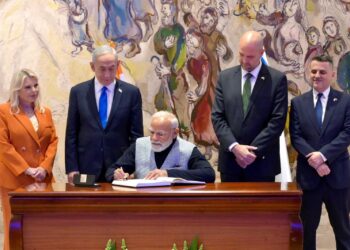
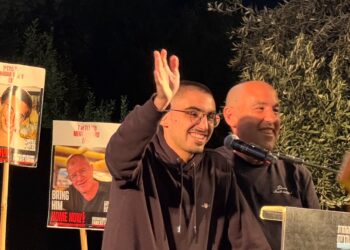
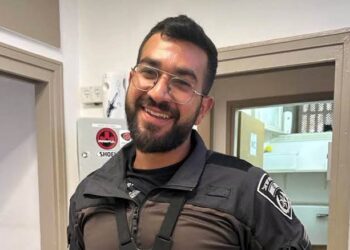
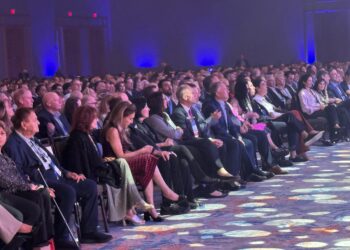
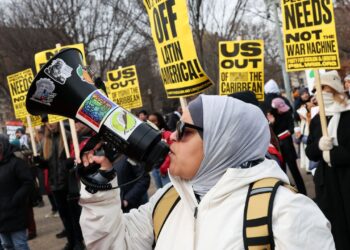
















Discussion about this post